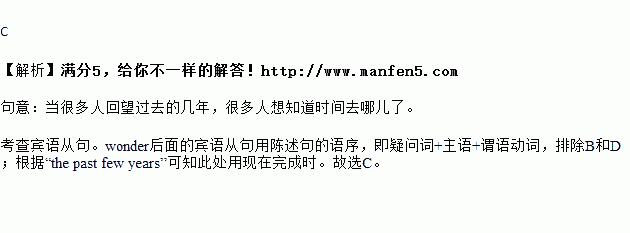题目内容
When they look back on the past few years, many people wonder ________.
A.where time will go B.where will time go C.where time has gone D.where has time gone
 举一反三期末百分冲刺卷系列答案
举一反三期末百分冲刺卷系列答案
We always look forward to World Book Day-it's a chance to share our love of books and reading with even more people! Here are some of the activities in different countries and places to celebrate the World Book Day, April 23rd every year. |
School Children's Books School Children's Books are happy that best-selling writer Holly Webb is their World Book Day writer for 2012. Holly has written a large number of books for children and she has written a special Magic Molly story just for this year's World Book Day! |
Reading Package On the World Book Day, every primary school student in Britain will receive a package from their school. Inside, there is a story book, a beautiful card and a reading list. Besides these three things, they will also receive a special note, which is worth one pound. Children can use it to buy their favorite books. And they can also enjoy a special price-20% cheaper. |
Share of Reading It is an interesting on-line activity which is for one week. People can share their opinions of a book on line. There are also many reading-aloud activities in libraries. For example, in 2010's World book Day, the former US first lady Michelle Obama read aloud a book called The Cat in The Hat for more than 200 children in a library. |
Information Card
The date of World Book Day | 1.. |
The name of the writer who wrote a special Magic Molly story | 2.. |
The thing that every primary school student in Britain receives on the World Book Day | 3.. |
The year when Michelle Obama read aloud a book for children on the World Book Day | 4.. |
The number of activities mentioned to celebrate the World Book Day | 5.. |


